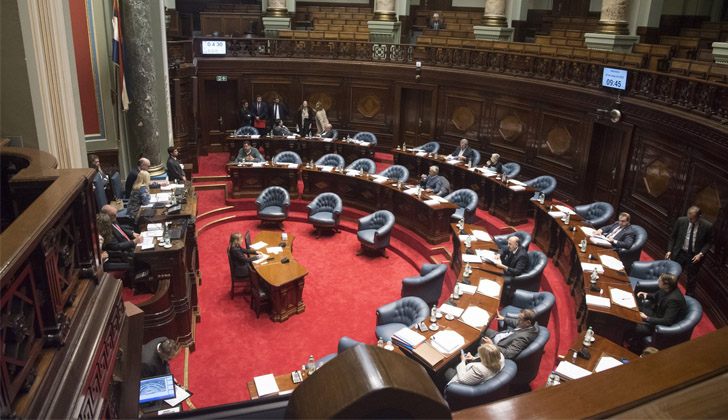
This Wednesday, after several hours of intense and heated debate and a nominal vote (with name and surname), the plenary of the Chamber of Senators of Uruguay approved the co-responsibility in parenting bill, also known as “joint tenancy”. With 17 votes in favor of the ruling party and 12 against of the Broad Front, the project was definitively sanctioned.
Child custody in cases of separation or divorce is a sensitive issue that has been debated in Uruguay in recent years. The ruling party maintains that, currently, possession is granted mainly to the mother when there is no agreement between the parents, which implies removing the father from contact and raising her children.
The criticized co-responsibility in parenting bill
The approved bill establishes the shared tenancy of children in cases of separation or divorce when parents can’t agree. However, the Broad Front rejects the bill on the grounds that joint custody of children will be granted, even when there are allegations of violence against one of the parents, generally the father.
Among the changes that were negotiated in the ruling party and that allowed for the votes to be approved, the article referring to shared ownership and the visitation regime in cases of complaint of domestic violence in court against one of the parents. According to the project, in these cases, the Justice must assign a defense attorney for the minor who will look after her interests and the judge who intervenes in the discussion on possession may review or suspend the visiting regime established if you understand that there is a risk to the child or children.
This bill was approved with modifications in the Chamber of Deputies and returned to the Senate to complete the parliamentary process. The senators had no other options to modify it, so in this Wednesday’s session they could only approve or reject it.
While the ruling party celebrates that progress has been made on the issue of gender equality, the Broad Front and feminist organizations have expressed their concern about the risk it represents for children in situations of domestic violence.
















